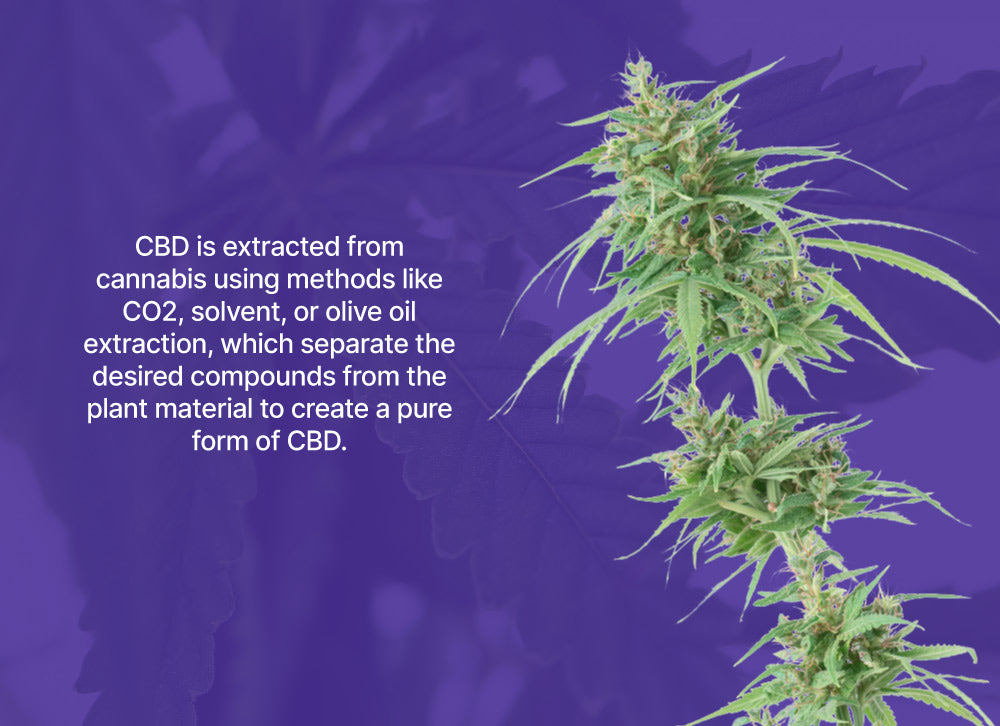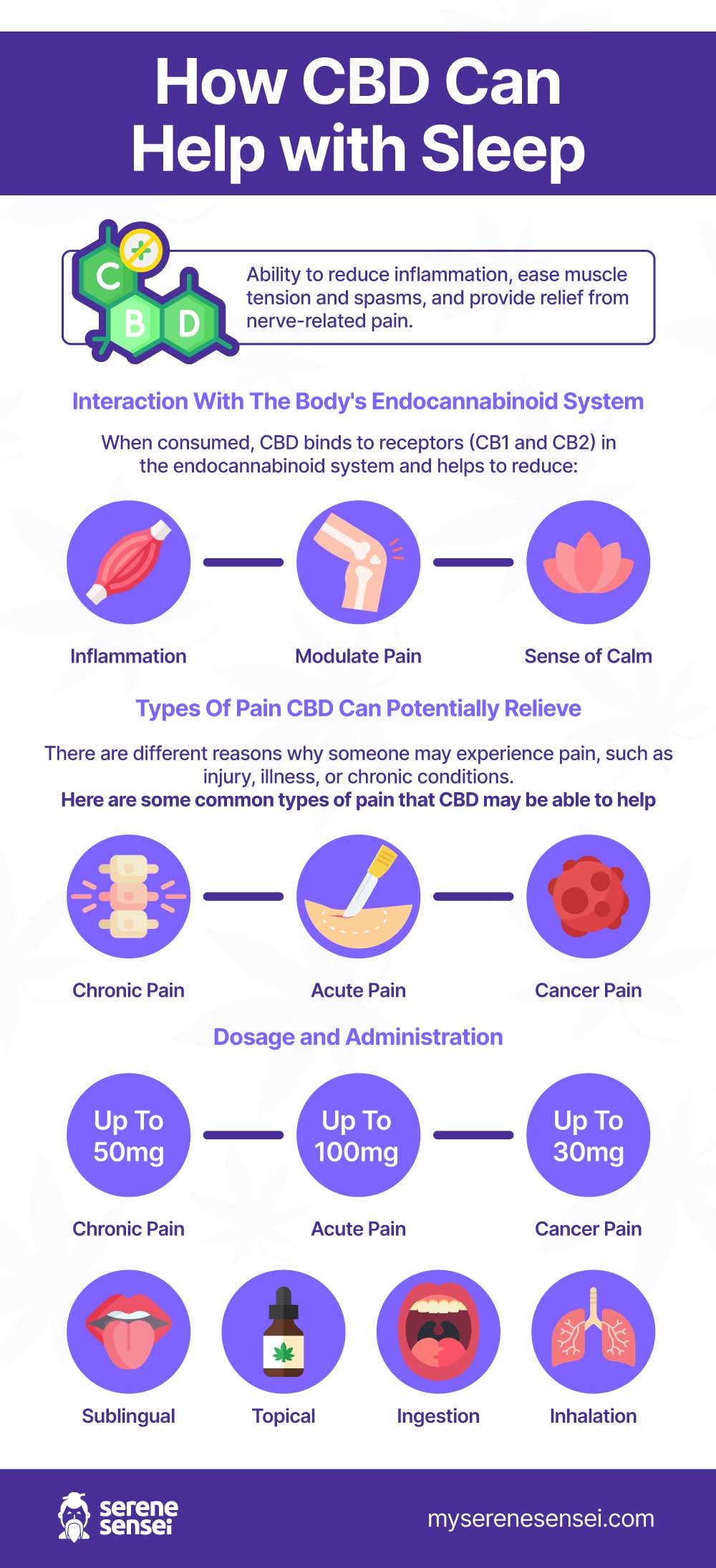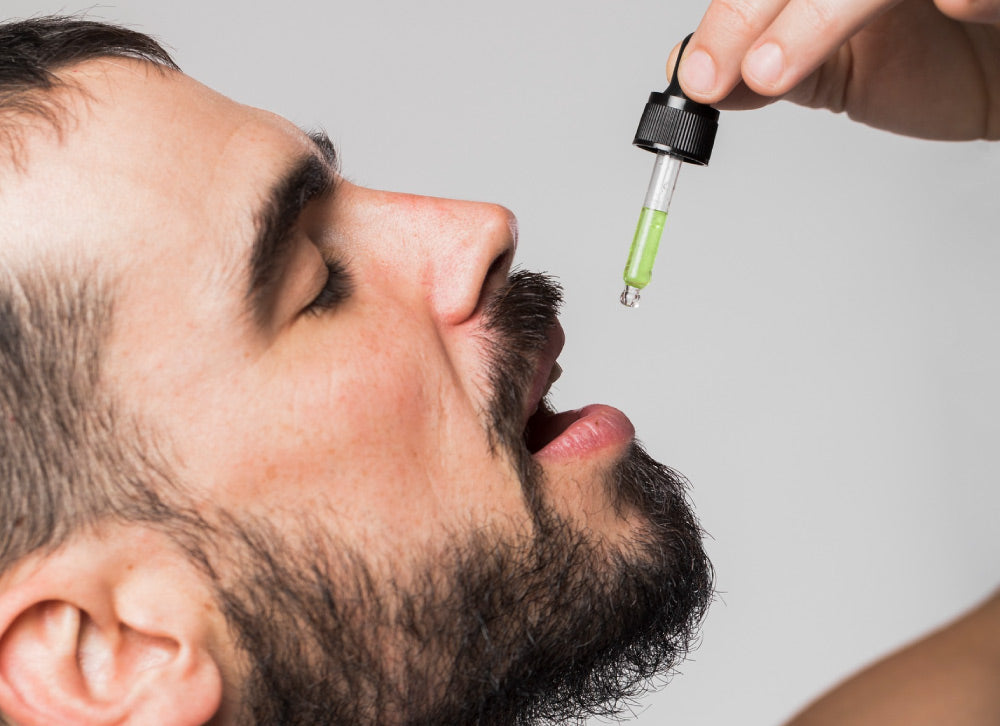Pain is a universal experience that none of us are immune to. Whether it's a headache or aching back, pain can seriously impact our physical and mental health. Fortunately, there is hope in the form of natural therapies like CBD to provide relief from chronic pain. In recent years, using CBD for pain relief has become a popular alternative to traditional medications, as it is effective in treating a variety of symptoms. This article will discuss the science behind how CBD works to alleviate chronic pain and provide an overview of its potential benefits. We'll also explore some tips for safely incorporating CBD into your health routine.
What is CBD?
Cannabidiol (CBD) is a substance found in hemp plants, which are related to marijuana. It is also an important ingredient in medical marijuana. Unlike other components in marijuana, CBD does not cause a "high" on its own and can be extracted from hemp plants or created in a lab. The process of extraction can depend on the desired potency and purity of the product but is typically done using a mix of solvents or carbon dioxide.
When consumed, CBD interacts with the endocannabinoid system (ECS), which controls various metabolic functions and helps to maintain balance in the body. The ECS is composed of many cannabinoid receptors, and when CBD binds to these receptors, it can help reduce pain, inflammation, anxiety, stress, and a number of other symptoms.

Why You Should Use CBD For Pain
There are numerous reasons why people use CBD for pain, including its ability to reduce inflammation, ease muscle tension and spasms, and provide relief from nerve-related pain. CBD does this without any long-term side effects, unlike many traditional painkillers. Additionally, CBD is thought to modulate the body's perception of pain, meaning that it can reduce the intensity of your pain signals and make them more manageable.
Different Types of CBD
CBD exists in three major forms; broad spectrum, full spectrum, and isolate. Below, we explain these methods in full detail.
Broad Spectrum CBD: Broad spectrum CBD includes all the active compounds found in hemp, with the exception of THC. This type of CBD is beneficial for those who want to enjoy the potential benefits of a range of cannabinoids without any psychoactive effects from THC.
Full Spectrum CBD: Full spectrum CBD contains all the active compounds found in hemp, including trace amounts of THC. This type of CBD is beneficial for those who want to experience the entourage effect (the combined impact of all cannabinoids working together) and potentially receive the full range of benefits from taking CBD.
Isolate CBD: Isolate CBD contains only pure CBD that has been separated from all other compounds. This type of CBD is beneficial for those who would prefer to keep THC out of their system entirely while still enjoying the potential benefits of CBD.

How CBD Works For Pain Relief
In this section, we will discuss the CBD works for pain relief:
Interaction With The Body's Endocannabinoid System
How does CBD work? CBD works by targeting the endocannabinoid system, which is responsible for maintaining homeostasis in the body and regulating a variety of physiological processes. When consumed, CBD binds to receptors (CB1 and CB2) in the endocannabinoid system and helps to reduce inflammation, modulate pain, and promote a sense of calm.
In addition to its effects on the endocannabinoid system, CBD has been shown to interact with serotonin and vanilloid receptors. These interactions help to reduce pain by blocking certain pathways in the brain that are associated with pain perception.
Overall, CBD is thought to work by helping the body regulate and balance its own responses to pain. This is why it may be a useful treatment for chronic and neuropathic pain, as well as inflammation-related conditions.
Anti-Inflammatory Effects
Inflammation is the body's natural response to injury or disease. It is caused by a release of white blood cells and other chemicals, which can lead to swelling, pain, and stiffness in joints. CBD has been shown to have anti-inflammatory properties by inhibiting the production of pro-inflammatory molecules such as cytokines and prostaglandins. This can help to reduce inflammation and ultimately decrease pain.
Effects On The Nervous System
Your nervous system is responsible for sending signals from your brain to the rest of your body. When you are in pain, these signals can be blocked or distorted, leading to an increased sensation of discomfort. CBD has been shown to have a calming effect on the nervous system, which can help reduce pain by restoring the proper flow of signals.
Overall, research indicates that CBD may be a helpful treatment for pain due to its ability to interact with the endocannabinoid system, reduce inflammation, and exhibit calming effects on the nervous system. It is important to note that more clinical studies are needed to fully understand how CBD works for pain relief.

Types Of Pain CBD Can Potentially Relieve
There are different reasons why someone may experience pain, such as injury, illness, or chronic conditions. Here are some common types of pain that CBD may be able to help with:
Chronic Pain
Chronic pain is defined as pain that lasts for longer than 3 months. It can be caused by a variety of conditions, such as arthritis, fibromyalgia, and endometriosis. CBD may be able to help reduce inflammation associated with these conditions and provide relief from chronic pain. Aside from this, it can be a safer option than other medications that are typically used to treat chronic pain.
Acute Pain
Acute pain is a short-term pain that usually occurs as a result of an injury or illness. It can be quite severe and sudden in onset but typically subsides after the underlying cause has been treated or healed. CBD may be able to provide relief from this type of pain due to its anti-inflammatory and analgesic properties. It may also speed up the process of recovery as it can reduce swelling and stiffness in the affected area.
Cancer-Related Pain
Cancer is a serious illness that can cause severe pain in those affected. Standard treatments such as chemotherapy and radiation therapy often come with their own set of side effects, including pain. CBD may be able to provide relief from cancer-related pain due to its ability to reduce inflammation and modulate neurotransmitters associated with pain.

Dosage and administration
Below are some general guidelines for taking CBD for pain relief:
Dosage Guidelines
There is a lack of regulations when it comes to the dosage of CBD products. It is important to speak with your doctor before taking any kind of supplement, including CBD. When determining dosage, there are a variety of factors to take into account, such as the illness you are experiencing and the severity of the symptoms. However, there are general guidelines that can be followed when it comes to taking CBD for pain relief.
For cancer-related pain, a low to moderate dose is typically recommended (up to 30mg per day with a maximum dose of 600mg). For chronic pain, a moderate dose is usually recommended (up to 50mg per day). Lastly, for acute pain, a high dose is typically used (up to 100mg per day).
Different Forms Of CBD
Using CBD for pain relief can be done in a variety of ways. Here are some popular methods:
CBD creams: Using CBD cream for pain relief is one of the most popular ways to use CBD for pain. You can use CBD cream for back pain, joint pain, muscle aches, and inflammatory discomfort.
CBD capsules: Taking CBD capsules is a convenient way to get the dosage you need. The effects of CBD capsules usually take a bit longer to kick in than other forms, but they can provide long-lasting relief.
CBD Oil: CBD oils are usually taken sublingually, meaning under your tongue. This allows for the CBD to be absorbed quickly and efficiently into the bloodstream. The best CBD oil for pain relief is usually full-spectrum CBD oil, as this contains a more diverse range of cannabinoids and terpenes that work together to provide the best effects.
CBD Gummies: CBD gummies are a tasty way to get the benefits of CBD. The effects of CBD gummies can last up to 4-8 hours and provide relief from pain. You can use CBD gummies for back pain or general discomfort.
CBD roll-ons: Using a CBD roll-on for pain relief is a convenient way to get the benefits of CBD. The roll-ons are typically applied directly to the affected area and can provide fast-acting relief from pain.
Administration Methods
When taking CBD for pain relief, it is important to choose the right administration method. Different methods come with their own set of benefits and drawbacks. Here are some popular methods:
Sublingual (under the tongue): Taking CBD sublingually is one of the most effective ways to get relief from pain. It allows for quick absorption into the bloodstream, which means that you can get relief in as little as 15 minutes.
Topical: Applying CBD topically is a great way to target specific areas of pain. It allows for localized relief from inflammation and discomfort.
Ingestion: Taking CBD orally is one of the most common ways to use it. The effects of CBD can last up to 8 hours and provide relief from pain, inflammation, and discomfort.
Inhalation: Inhaling CBD is one of the fastest ways to get relief from pain. It allows for quick absorption into the bloodstream and provides almost immediate relief.
Potential Side Effects And Precautions
While there is promising research on the potential benefits of CBD, it is important to understand that it can also cause some side effects. This section will help you understand the potential side effects and precautions to consider when using CBD.
Common Side Effects
Here is a list of some of the most common CBD effects:
Dry Mouth: Dry mouth is one of the most common side effects of taking CBD. To avoid this, you can drink plenty of water or chew sugar-free gum.
Drowsiness: Taking too much CBD can cause a feeling of drowsiness or sleepiness. If this happens, you should lower your dose and talk to your doctor about adjusting your dosage.
Mood Change: CBD can cause changes in mood, such as feelings of euphoria or anxiety. If you experience this, you should talk to your doctor about adjusting your dosage.
Changes In Appetite: Taking CBD can cause changes in appetite. If this happens, you should talk to your doctor about adjusting your dosage.
Potential side effects and precautions
It is important to speak with your doctor before taking CBD for pain relief. They can help you decide the best dosage and form of CBD for you and provide advice on any potential interactions with other medications.
Some medications that are known to interact with CBD include:
Antidepressants: Taking CBD with antidepressants can increase the risk of serotonin syndrome.
Blood Thinners: CBD can interact with blood thinners, such as warfarin and heparin, increasing the risk of bleeding.
Immunosuppressants: Taking CBD with immunosuppressants may increase your risk of infection.
It is also important to use only high-quality, lab-tested CBD products for pain relief. Many products on the market are not properly labeled and could contain contaminants or incorrect dosages.
Finally, certain groups of people should not take CBD. These include pregnant and breastfeeding women and children. If you are in any of these groups, consult your doctor before taking CBD.
Where to Get the Best CBD pain relief cream (From Serene Sensei)
At Serene Sensei, we believe everyone should have access to the highest quality CBD products. We make it easy with our selection of top-rated CBD pain relief creams and gels that are formulated with natural ingredients. From CBD tinctures and CBD roll-ons to CBD for pets, all our products are third-party tested and made in the USA. Check out our products on our menu or contact our support team for any questions you may have.

Conclusion
Using CBD for pain is an incredibly popular option for individuals suffering from ailments. It has been found to be effective in reducing inflammation and providing relief from pain, discomfort, and anxiety. While there are potential side effects and interactions with other medications, CBD can be safely used as part of a holistic treatment plan for managing pain.
It is important to consult your doctor before taking CBD to ensure that it is safe for you. Understand the potential side effects and precautions to consider when using CBD, and make sure to use only high-quality lab-tested products. With the right dosage and form of CBD, you can experience relief from pain with minimal risk.
Frequently Asked Questions
What Is The Best THC Cream For Pain?
THC is a different compound from CBD and contains psychoactive properties. While THC can provide relief from pain, it is not recommended for those looking for a milder and non-psychoactive experience.
Can You Use CBD Gummies For Fibromyalgia?
Yes, CBD gummies can be used to manage fibromyalgia symptoms. It is important to consult your doctor before taking CBD for any medical condition.
Can You Use CBD Edibles For Pain Management?
CBD edibles can be used for pain management, but it is important to find a product that contains the right dosage of CBD for your needs.
How To Use CBD For Neck Pain?
To use CBD for neck pain, we recommend applying a CBD cream or gel to the affected area for targeted relief.
Is CBD Safer Than Opioids?
Opioids are a class of drugs that act on the body's opioid receptors and produce effects similar to those of opium. Opioids can be used to manage pain but have become widely abused due to their addictive nature and potential for overdose. CBD is not considered an opioid and may provide relief from pain without the risk of addiction or overdose. Therefore, it may be a safer option than opioids for managing pain.
Is CBD Better Than Tylenol For Pain?
The answer to this question can vary from person to person, as everyone's experience with pain medications is different. Always remember to speak to your doctor before taking any medication or supplement for pain relief.
What Strength Of CBD Is Best For Arthritis?
As a rule of thumb, it is best to start with a lower strength of CBD and gradually increase the dosage until you experience relief.

